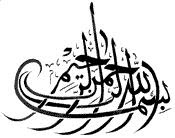Take a journey across space and time through the multi-dimensional door that is the soul of my being... For the Salik (Arabic for traveller, also a Sufi term for a searcher) merges in him the raw qualities of an earthly being nicely blended with the divine qualities that belong to Him, the Alpha and Omega of everything.

-----------------------
This blogspot is a medium to share my thoughts and adventures apart from promoting my books. Below are the books which have been written or authored and published by myself.

"Berpetualang ke Aceh: Mencari Diri dan Erti".
ISBN 983-42031-0-1, Jun 2006
"Berpetualang ke Aceh: Membela Syiar yang Asal"
ISBN 983-42031-1-x, May 2007

"Berpetualang ke Aceh: Sirih Pulang ke Gagang?"
ISBN 978-983-42031-2-2, November 2007
It is interesting to note that while these books were written in Malay it has gained enough attention to merit being part of the collections of the American Library of Congress and National Library of Australia. Look here and here.
While the first three books were published by my own company, the fourth titled "Rumah Azan" was published in April 2009 by a company called Karnadya with the help of the Malaysian national literary body Dewan Bahasa dan Pustaka. It features beautiful pictures along with stories behind selected mosques which could be related to the history of Islam and the Malays alongside the formation of the Malaysian nation. Look at the article A collaboration of old collegemates - the book "Rumah Azan".
My fifth book "Ahlul Bait (Family) of Rasulullah SAW and Malay Sultanates", an English translation and adaptation of the Malay book "Ahlul Bait (Keluarga) Rasulullah SAW dan Kesultanan Melayu" authored by Hj Muzaffar Mohamad and Tun Suzana Othman was published early 2010. Look here... My 5th book is out! Ahlul Bait (Family) of Rasulullah SAW and the Malay Sultanates... . For more information check out my Malay blogspot CATATAN SI MERAH SILU.

Like my fourth book "Rumah Azan", the sixth book "Kereta Api Menuju Destinasi" is also a coffee-table book which is published by the company Karnadya with the cooperation of Dewan Bahasa dan Pustaka (the main Malay literary body in Malaysia). Coming out January 2011 it features pictures and stories on the adventure travelling by train to all of Peninsular Malaysia along with the interesting places which could be reached this way.
My seventh book "Jejak keluarga Yakin : Satu sketsa sejarah" in turn is a coffee-table book which is written, editted, designed and has pictures taken by me. Coming out of the factory October 2011, this book which combines family history with history of places such as Singapura, Johor, Batu Pahat, Muar and in fact the history of the island of Java and England has been reviewed with me interviewed live in the program Selamat Pagi Malaysia at RTM1. Look at the article Siaran langsung ulasan buku "Jejak keluarga Yakin : Satu sketsa sejarah" dan temu ramah di Selamat Pagi Malaysia. Some selected contents have been featured in Sneak peek "Jejak keluarga Yakin : Satu sketsa sejarah".
-----------------------

The "Berpetualang ke Aceh" series of novels could be obtained in e-book form. Enter http://www.e-sentral.com/, click general novel and go to page 4. You can also type the word "Aceh" at the search box. Or click straight Book 1, Book 2 and Book 3.
Wednesday, December 13, 2006
The Pangkor Treaty of 1874
For information, the treaty paved the way for direct intrusion into local rule by the colonialist. Soon enough it caused an uproar and the killing of the first British resident to Perak and this give the British the right excuse to flex their muscles and practically rule the country.
In time, the whole Malay Peninsula felt under their control and the rest is history.
Eh... Just read what Wikipedia have to say...
The Pangkor Treaty of 1874 was a treaty signed between the British and the Sultan of Perak. Signed on January 20, 1874 on the island of Pangkor off Perak, the treaty is significant in history of the Malay states as it signalled official British involvement in the policies of the Malays.
Perak was a major tin producer throughout the nineteenth century, leading the UK, which had already obtained Penang, Malacca and Singapore, to consider Perak of significant importance. However, local strife collectively known as the Larut War between the local Malay elites and frequent clashes between secret Chinese societies disrupted the flow of tin from the mines of Perak.
In 1871, Sultan Ali, the ruler of Perak died. Due to Perak's complex succession system, Raja Abdullah should have been appointed as the next Sultan of Perak but Raja Ismail was elected instead. At around the same time, two secret Chinese societies known as Ghee Hin led by Chin Ah Yam and Hai San led by Chung Keng Quee constantly waged battle against each other for control of the tin mines.
Raja Abdullah later asked for the British help to solve these two problems. The British immediately saw this as a great opportunity to expand its influence in Southeast Asia and strengthened its monopoly on tin. As a result, the Pangkor Treaty of 1874 was signed.
The agreement dictated:
Raja Abdullah was acknowledged as the legitimate Sultan to replace Sultan Ismail who would be given a title and a pension of 1000 Mexican pesos a month.
The Sultan would receive a British Resident whose advice had to be sought and adhered to in all matters except those pertaining to the religion and customs of the Malays.
All collections and control of taxes as well as the administration of the state had to be done under the name of the Sultan but arranged according to the Resident's advice.
The Minister of Larut would continue to be in control, but would no longer be recognized as a liberated leader. Instead, a British Officer, who would have a vast authority in administrating the district, would be appointed in Larut.
The Sultan and not the British government would pay the Resident's salary
Perak handed the area of Dinding to the British.
Raja Ismail did not attend the meeting arranged between Sir Andrew Clarke and Raja Abdullah. Raja Ismail obviously did not recognize the agreement but he had no choice against the alliance between Raja Abdullah and the British. As a result, Raja Abdullah was made Sultan and Sir J.W.W. Birch was appointed as Perak's first British Resident after the treaty came to force.
Following this agreement, the British actively became involved in three other Malay states; Negeri Sembilan, Selangor and Pahang. These states along with Perak later became the Federated Malay States




No comments:
Post a Comment